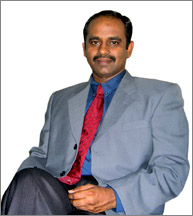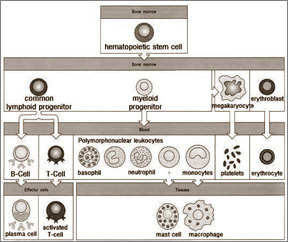A new lease of life for kidney patients
Glimmer of hope with combination therapy :
by Ranga Chandrarathne
|

Dr Palani Ravichandran
|
One of major obstacles in the transplantation of kidney is the
natural mechanism in the human body which immediately rejects the
transplanted host organ. The regime of drugs which would virtually stop
the natural mechanism of rejection entail transplanted kidney
susceptible to infection shortening the life of the transplanted kidney.
The growing body of evidence has proved that the life span of a
transplanted kidney is shortening by the infections. The situation is
further compounded as less than 10 % of kidney patients can afford to
prolong their lives on dialysis and 1% can afford to find a donor and go
for transplantation.
WHO has declared March 2 as World Kidney Day considering the enormity
of the problem. Suddenly the incidents of kidney failure are shooting up
and particularly in developing countries. India is going to be called
the capital of diabetes.
Sri Lanka also has the same problem; diabetes, hyper tension and
kidney failures. However, very few nephrologists are available in Sri
Lanka, said Dr. P. Ravichandran referring to the current state of kidney
failures in Sri Lanka
Owing to the condition known as chronic allograft nephropathy the
life span of a transplanted kidney remains between five to ten years.
Either the patient has to go back to dialysis or find a donor to go for
transplantation.
 Lymphocytes, the most important of the immune cells are responsible
for launching a seek-and-attack-mission on new kidney cells causing
damage to the transplanted kidney. Drugs and infections also cause major
damage and are the principle reason for the failure of a transplanted
kidney. Lymphocytes, the most important of the immune cells are responsible
for launching a seek-and-attack-mission on new kidney cells causing
damage to the transplanted kidney. Drugs and infections also cause major
damage and are the principle reason for the failure of a transplanted
kidney.
"In the new technology, we start conditioning the body to suit the
new kidney. There are four types of immune systems. One forms the
anti-bodies while the other forms the segregated immunity. Under this
system we only removed these anti-bodies and do not attack the system,
so that still that parts have the immunity to attacks hostile bacteria
and infections.
This immune condition system for the first time was introduced by us
and we are now able to do transplant on persons aged above 60 years and
those who are not suitable for steroids," said Dr. Ravichandran on the
new technology.
Dr Palani Ravichandran, MD DM and head of Nephrology and
Transplantation KIOT, Barathi Raja Hospital T Nagar Chennai has
developed a new novel technique in transplantation called combination
therapy, which prevents rejection of a transplant kidney and also
converts a high-risk patient to a low risk individual.
It has been found that few patients who live with their kidney beyond
ten or more years develop what is called 'tolerance' and this was
possible because the body had in them a new type of cell called T regs
or immune regulatory lymphocytes which work exactly opposite to that of
destroying lymphocytes so these cells when their percentage is increased
were effective in preventing the damage to the kidney cells and thereby
could prolong the life of a transplanted kidney.
Research was directed to increase these cells and this was done by a
combination therapy by use of different types of monoclonal injections
that target specific immune cells so as not to disturb the regulatory
cells.
 Once the lymphocytes were depleted the already present antibody were
also reduced by a new method called Double Filtration Plasmapheresis and
Splenic radiation. To prevent infection as a result of low immunity, the
patient was infused with donor's stem cells and these cells were allowed
to grow post operatively in an environment in such a way that they
turned into tolerant cells and also protected the new kidney cells from
not only being destroyed but also to replace those cells which were also
damaged. Once the lymphocytes were depleted the already present antibody were
also reduced by a new method called Double Filtration Plasmapheresis and
Splenic radiation. To prevent infection as a result of low immunity, the
patient was infused with donor's stem cells and these cells were allowed
to grow post operatively in an environment in such a way that they
turned into tolerant cells and also protected the new kidney cells from
not only being destroyed but also to replace those cells which were also
damaged.
This prolonged the life of the transplanted kidney by three ways, one
by preventing rejection, two by not developing infection as drugs needs
are very low and three drugs that damage the kidney need not be used
namely cyclosporine and steroids.
The patients are monitored by the development of antibody in the
blood periodically by a most advanced test called anti HLA antibody test
for class I and class II antigens to make sure that the damaging
lymphocytes do not come back.
The research work, which was presented in scientific forums conducted
in World Transplant Congress Boston USA, Berlin Germany, and European
transplant society congress at Switzerland. The research publication
will be published in the prestigious journal International
Immunopharmacology in the coming month.
Many centers have shown interest to learn more on this new technology
which is very useful in poor patients especially who cannot afford to
get costly medication postoperatively.
[email protected] |
